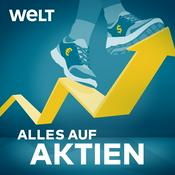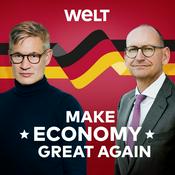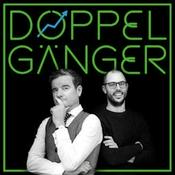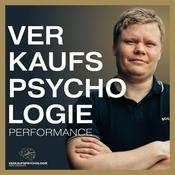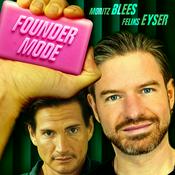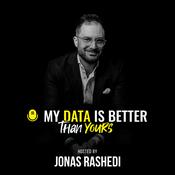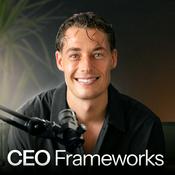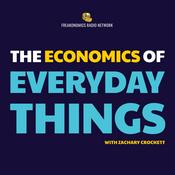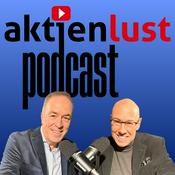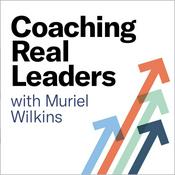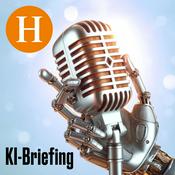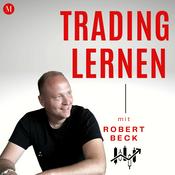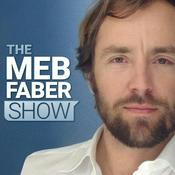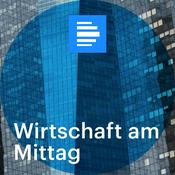28 Episoden
- How do you move AI from a flashy demo on a conference stage to something that can handle real customer pressure on a Monday morning when the tickets are piling up?
In this episode of AI At Work, I sit down with Niraj Ranjan Rout, Founder and CEO of Hiver, to unpack what it really takes to build AI that works inside high-volume support environments. With more than 10,000 teams using Hiver, including brands like Flexport, Capital One, and Epic Games, Niraj has had a front-row seat to both the promise and the pitfalls of AI in customer service.
We talk about the difference between “slapping a chatbot” onto an existing problem and rethinking the entire support workflow. Niraj makes a compelling case that AI should function as infrastructure, embedded across triage, routing, drafting, summarization, quality assurance, and insights. Rather than replacing agents, the goal is to remove the repetitive, manual work that drains time and energy, so humans can focus on solving real problems and understanding how customers actually feel.
Our conversation also gets into the uncomfortable but necessary topics many leaders underestimate. Data hygiene. Governance. The reality that 98 percent accuracy is sometimes still not good enough. Niraj shares why clear handoff protocols between humans and AI are essential, and how organizations can avoid measuring ROI through surface metrics like deflection rates alone. Instead, we explore more nuanced signals, from sentiment shifts to long-term customer outcomes and team productivity.
We also discuss Hiver’s own journey from an email collaboration tool to an AI-native customer service platform. Niraj is candid about the noise in the market, from overblown promises to doomsday narratives, and how founders must stay close to customers while remaining hands-on with emerging models and agentic capabilities. Culture, he argues, is as important as code. Customer stories need to flow directly into product and engineering teams if AI investments are going to remain grounded in reality.
And yes, we even end on a musical note, with a nod to Jimi Hendrix and a reminder that creativity, whether in music or software, still comes down to craft and feel.
So here’s the question I’ll leave you with. As AI becomes embedded into every workflow, are you treating it as a shiny add-on, or are you redesigning your foundations so it can truly perform under pressure? - What does AI at work really look like once the hype fades and the day-to-day reality sets in?
In this episode of AI at Work, I’m joined by Nicole Leib, Regional Vice President of People for the Americas and Global Head of Inclusion at monday.com, for a grounded, refreshingly honest conversation about how AI is actually being used in modern organizations. We recorded this during CES week, when every headline seemed to promise disruption, reinvention, and job loss. Yet the data Nicole brings to the table tells a very different story.
Drawing on Monday.com’s World of Work: AI Edition report, produced in partnership with Nielsen and informed by millions of real workflows, Nicole explains why labor reduction is not the primary driver behind AI adoption. Instead, organizations are using AI to move faster, improve accuracy, and reduce the cognitive load placed on teams. This marks a clear shift into what she calls the operational era of AI, where success is measured by practical outcomes rather than futuristic promises. We unpack why the tools gaining traction are not the flashiest, but the ones that fit naturally into existing workflows and simply help people get through their day.
We also explore the human side of AI adoption. Nicole shares insights into why innovation is barely a motivator right now, what tool overload looks like in practice, and why simplification is becoming a real competitive advantage. Our conversation touches on trust, security, and governance, especially for larger enterprises, and why embedding AI into systems people already rely on matters more than adding yet another standalone tool. We also address the confidence gap around AI, including the striking gender divide where women are often using AI more while undervaluing their own expertise, and what that means for career progression.
By the end of the discussion, one idea stands out above all others. AI is not pushing people out of work. It is helping them step up, take on more strategic responsibilities, and rethink what valuable work looks like in a world of constant change.
As we look ahead to what the next phase of AI at work might bring, are our leaders ready to stop waiting for a perfect future moment and start treating AI as a core operating capability today, and how are you seeing that shift play out inside your own organization?
Useful Inks
Connect With Nicole Leib,
Introducing AI at work: From vision to value, Monday Research’s latest report
Follow Monday on LinkedIn
Thanks to our sponsors, Alcor, for supporting the show. - What if the most important jobs of the next decade already exist, but we just have not named them yet?
In this episode of AI at Work, I sit down with Marinela Profi from SAS to unpack how artificial intelligence is reshaping work at a deeper level than most headlines suggest. We are not just talking about tools, automation, or faster workflows. We are talking about new roles, new decision structures, and a fundamental shift in how humans and machines collaborate inside modern organizations.
Marinela brings a grounded, enterprise-tested perspective to agentic AI, cutting through the confusion that still surrounds the term. She explains why large language models are not agents, why autonomy is often misunderstood, and why most successful AI systems will always keep humans in the loop. We explore how agentic systems differ from traditional AI, how deterministic guardrails and probabilistic models must work together, and why governance needs to be designed into systems from day one rather than bolted on later.
One of the most compelling parts of this conversation is our discussion on future roles. A few years ago, no one imagined titles like cloud governance architect. Marinela explains why roles such as AI decision designers and AI experience designers are likely to follow a similar path. These are not abstract ideas. They are practical responses to real challenges organizations face as AI systems begin to act, decide, and operate at scale.
We also dig into where teams tend to go wrong. Too many organizations rush from pilots to hype without addressing data readiness, orchestration, or accountability. Marinela shares real examples from regulated industries, including banking, insurance, telecoms, and manufacturing, where agentic AI has moved from experimentation into production by focusing on decision workflows rather than flashy prototypes.
This is a conversation for CIOs, CDOs, business leaders, and professionals who want to understand what AI means for work beyond surface-level narratives. It is also for students and early-career listeners who want to prepare for roles that are still taking shape, but will soon be unavoidable.
If AI is becoming an expected skill rather than a specialist one, how do you prepare yourself and your organization for work that is already changing in front of us?
I would love to hear your thoughts after listening. Where do you see human judgment becoming more important as AI systems grow more capable, and which future roles do you think we will be talking about next year?
Useful Links
Connect with Marinela Profi
SAS Website
Follow SAS on LinkedIn
Thanks to our sponsors, Alcor, for supporting the show. - What happens when eighty percent of the global workforce receives less than one percent of technology investment, and why has this imbalance gone largely unchallenged for so long?
In this episode, I sat down with Emma Seymour, Chief Financial Officer of Deputy, to unpack the realities facing the world’s so-called invisible workforce. Deskless workers power healthcare, retail, hospitality, and frontline services, yet the tools built to support them have historically lagged far behind those designed for office-based teams. Emma brings a grounded, finance-led perspective on why this gap exists and why it is finally starting to close.
We explored how AI-driven workforce management is moving beyond hype and into practical, measurable outcomes. From optimizing staffing levels to reduce overstaffing and burnout, to giving workers more control over their schedules through self-service tools, Emma shared how Deputy is translating technology investment into real operational and human impact. We also discussed how AI is reshaping the finance function itself, automating admin-heavy tasks and freeing up teams' time to focus on higher-value work.
What also stood out in this conversation was leadership. Deputy’s predominantly female executive team offers a rare example of scaling a billion-dollar technology company while balancing high performance with high care. Emma shared how trust, accountability, and empathy shape decision-making inside the business, and why that culture matters just as much as product innovation when serving a workforce that has been overlooked for decades.
As AI continues to accelerate and workforce pressures intensify, what would it look like if more technology companies truly built for the people who keep the global economy running, and how differently might work feel if the invisible workforce finally became visible?
Useful Links
Connect with Emma Seymour
Learn more about Deputy,
Follow on LinkedIn
Thanks to our sponsors, Alcor, for supporting the show. - Are today’s AI tools actually doing the work, or are they still sitting on the sidelines offering advice that humans have to act on?
In this episode of the AI at Work podcast, I sat down with Oren Michels, Founder and CEO of Barndoor AI, to explore why so much enterprise AI still feels stuck in what he calls “advisor mode.” We talked about the gap between AI that summarizes and AI that acts, and why that distinction matters far more to knowledge workers than most leaders realize. Oren drew on his experience building Mashery during the early days of APIs, drawing a clear parallel between then and now, when powerful technology exists but remains inaccessible to the people who actually need to use it.
We spent a lot of time unpacking what true agentic AI really means inside the enterprise. For Oren, it is not about smarter chatbots or recycled RPA workflows, but about agents that can safely take action inside systems like Salesforce, CRMs, and other tools of record. We discussed why so many AI initiatives fail to deliver ROI, and why the missing skill is often not prompt engineering, but the ability to break real business problems into clear, executable instructions that an AI agent can actually follow.
Governance became a central theme in our conversation, especially as we dug into the Model Context Protocol, or MCP. While MCP is emerging as a powerful standard for connecting AI to enterprise tools, Oren explained why it also introduces new security, cost, and control challenges if left unchecked. We explored why governance should act as a launchpad rather than a brake, how least-privilege access changes the conversation, and why the most important question is not how a model was trained, but what it can do with access right now.
If you are thinking seriously about agentic AI, enterprise adoption, or how to prevent “bring your own AI” from becoming the next wave of shadow IT, this episode will give you a grounded, experience-led perspective on what actually needs to change inside organizations. As AI agents begin to operate at speed and scale across core systems, are your guardrails designed to stop progress, or to make it possible to move forward with confidence?
I would love to hear your thoughts after listening. How close do you think we really are to AI that acts, not just advises?
Useful Links
Connect with Oren Michels
Learn more about Barndoor AI
Thanks to our sponsors, Alcor, for supporting the show.
Weitere Wirtschaft Podcasts
Trending Wirtschaft Podcasts
Über AI at Work
What does AI really mean for the modern workplace, and are we ready for what comes next?AI at Work is a podcast from the Tech Talks Network, the home of conversations that showcase the voices at the heart of enterprise technology. You may know me from Tech Talks Daily, where we explore a different area of innovation in every episode. This show offers a focused look at one of the most significant shifts in business: how artificial intelligence is transforming the way we work..AI at Work is a podcast from the Tech Talks Network, the home of conversations that showcase the voices at the heart of enterprise technology. You may know me from Tech Talks Daily, where we explore a different area of innovation in every episode. This show takes a focused look at one of the biggest shifts in business: how artificial intelligence is transforming the way we work.From intelligent automation to agentic AI and from the promise of workplace efficiency to the risks of unintended consequences, we aim to provide a grounded and accessible perspective on how AI is shaping the future of work.If you’re using AI in your business or thinking about how to get started, this podcast is your chance to learn from the people already doing it.
Podcast-WebsiteHöre AI at Work, Handelsblatt Morning Briefing - News aus Wirtschaft, Politik und Finanzen und viele andere Podcasts aus aller Welt mit der radio.de-App
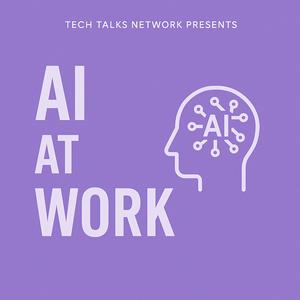
Hol dir die kostenlose radio.de App
- Sender und Podcasts favorisieren
- Streamen via Wifi oder Bluetooth
- Unterstützt Carplay & Android Auto
- viele weitere App Funktionen
Hol dir die kostenlose radio.de App
- Sender und Podcasts favorisieren
- Streamen via Wifi oder Bluetooth
- Unterstützt Carplay & Android Auto
- viele weitere App Funktionen


AI at Work
Code scannen,
App laden,
loshören.
App laden,
loshören.





